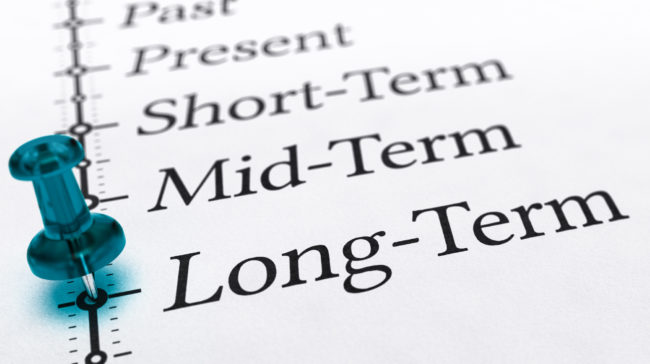“The Market Has No Memory” was the title of a recently penned article by David Booth, co-founder of our partner firm, Dimensional Fund Advisors (DFA). David’s article, published in January 2020, was about the lesson learned from 2019, which is the same lesson investors learn year after year.
Predicting what the market will do is a futile exercise.
Predictions can create anxiousness, fear and worry.
But why do we put so much into other’s abilities to ‘accurately’ predict where the market will be this year? Predictions are a friend to newspapers, magazines, and TV shows.
It seems, predictions sell.
With the constant bombardment of headlines and soundbites, it does have an impact on what and how we think. As humans, we are constantly searching for certainty in our lives. Grabbing on to the headlines and soundbites creates this quasi ‘certainty’. If I read it (and heard it), it must be true.
The truth is, these predictions are always short term focused.
Short term focus and our behavior impacts portfolio return. So much so, there is a field of study dedicated to this topic. It’s called Behavioral Finance. In my upcoming posts, I will share more about investor bias and how this impacts portfolio return, and ultimately the impact it can have on living out our retirement dreams.
The lesson according to David Booth, gleaned from his 50 years of working in finance:
“Don’t try to time the market. Don’t try to figure out when to get in and when to get out – you’d have to be right twice. Instead, figure out how much of your portfolio you’re comfortable investing in equities over the long-term so you can capture the ups and ride out the downs. A trusted professional can help you make the determination, as well as prepare you to stay invested during times of uncertainty.
Not enough “experts” subscribe to this point of view. They’re still trying to predict the future.
We’ll never know when the best time to get into the market is because we can’t predict the future. And if you think about it, that makes sense. If the market’s doing its job, prices ought to be set at a level where you experience anxiety. It’s unrealistic to think the market would ever offer an obvious time to “get in”. If it did, there would be no risk and no reward.
So what should you do in 2020?
Stay a long term investor in a broadly diversified portfolio. Reduce your anxiety by accepting the market’s inevitable ups and downs. Make sure the people advising you align with your perspective. Stop trying to time the markets, and you’ll find you have more time to do the stuff you love to do.”
Sounds like a golden nugget of sage advice.








